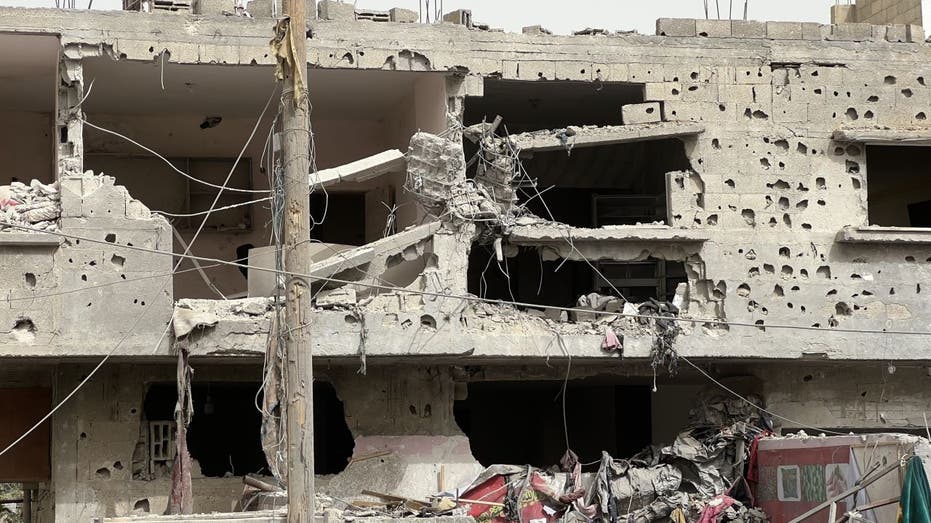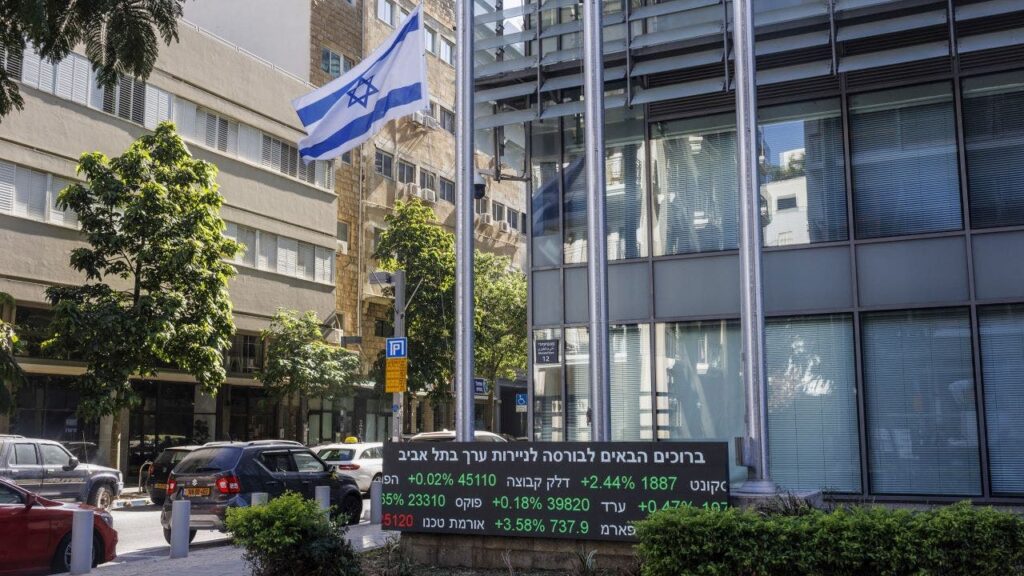S&P Global Ratings on Thursday cut key short- and long-term credit ratings for Israel amid the country’s ongoing conflict with Hamas and its recent confrontation with Iran.
S&P Global lowered the long-term foreign and local currency sovereign credit ratings to ‘A+’ from ‘AA-‘ and the short-term ratings to ‘A-1’ from ‘A-1+’ – and also has a negative outlook on long-term ratings. This comes after Iran attacked Israel with missiles and drones that were largely repelled by Israel and a multinational coalition that included the U.S., and a retaliatory strike by Israel.
“The downgrade follows what we view as a further increase in already high geopolitical risks that Israel faces in the aftermath of the first direct attack by Iran in mid-April 2024,” the ratings agency wrote. It explained that ongoing hostilities with Hamas in Gaza, as well as threats from Iran and its Lebanon-based proxy Hezbollah have caused expectations about the duration of the conflict to continue this year.
“Under our baseline scenario, we still expect a wider regional conflict to be avoided, but the Israel-Hamas war and the confrontation with Hezbollah appear set to continue throughout 2024,” S&P Global Ratings wrote. “This is in contrast to our October 2023 expectation of military activity not lasting more than six months.”
ISRAEL STRIKES SITE IN IRAN IN RETALIATION FOR WEEKEND ASSAULT: SOURCE
The baseline scenario projects that the Israel-Hamas war will continue throughout 2024 with its intensity likely to ease over time. Further, it is expected that Hezbollah and Israel will continue to exchange fire at the northern border with Lebanon but that it won’t escalate into a more direct war, and that that conflict won’t widen across the Middle East. It also assumes “there will be no substantial continuing direct confrontation with Iran and no broader instability in the West Bank.”
“We currently see several possible military escalation risks, including a more substantial, direct, and sustained military confrontation with Iran. Israel faces international pressure to contain its response to the April 13 attack, while Iran has communicated its intention not to escalate. Nevertheless, risks of accidents or miscalculation remain, in our view, particularly if there was further exchange of fire by the two sides,” the credit ratings agency added.
US DESTROYED MORE THAN 80 DRONES, AT LEAST 6 BALLISTIC MISSILES FROM IRAN AND YEMEN

It also noted that conflict could intensify between Israel and Iran-backed terror group Hezbollah if it intensifies its attacks on Israel, or if Israel intervenes in Lebanon to establish a safety zone by moving Hezbollah further away from the border on Lebanon’s side.
S&P said Israel’s economy contracted by 5.7% on a quarterly basis in the fourth quarter of 2023 following Hamas’ terror attack on Israel, which prompted Israel’s intervention in Gaza. The agency noted, “Given the past resilience and arguably higher capacity of the Israeli economy to adapt to the impact of military conflicts, we expect a significant rebound in growth in the first quarter of 2024.”
IRANIAN SENIOR OFFICIAL SAYS COUNTRY HAS NO PLAN TO RESPOND TO ISRAELI STRIKE IMMEDIATELY: REPORT

“Nevertheless, quarterly output will remain below prewar levels throughout 2024 given the continuing disruption and high uncertainty,” S&P Global said. “By expenditure, investment has registered the steepest fall of 26% in the final quarter of 2023, and we expect it will take the longest to recover the previous peak. In contrast, we expect consumption spending (combined public and private) already recovered in the first quarter of 2024.”
S&P Global’s report also noted that it could lower Israel’s ratings if the ongoing conflicts widen, or that a rating cut could occur in the next 12-24 months if the impact of the conflicts on Israel’s economic growth, fiscal position and balance of payments “proves more significant that we currently project.”
It also noted that the present negative outlook could be revised to stable “if we viewed the likelihood of military escalation as reduced and the broader security risks moderated.”
Read the full article here












